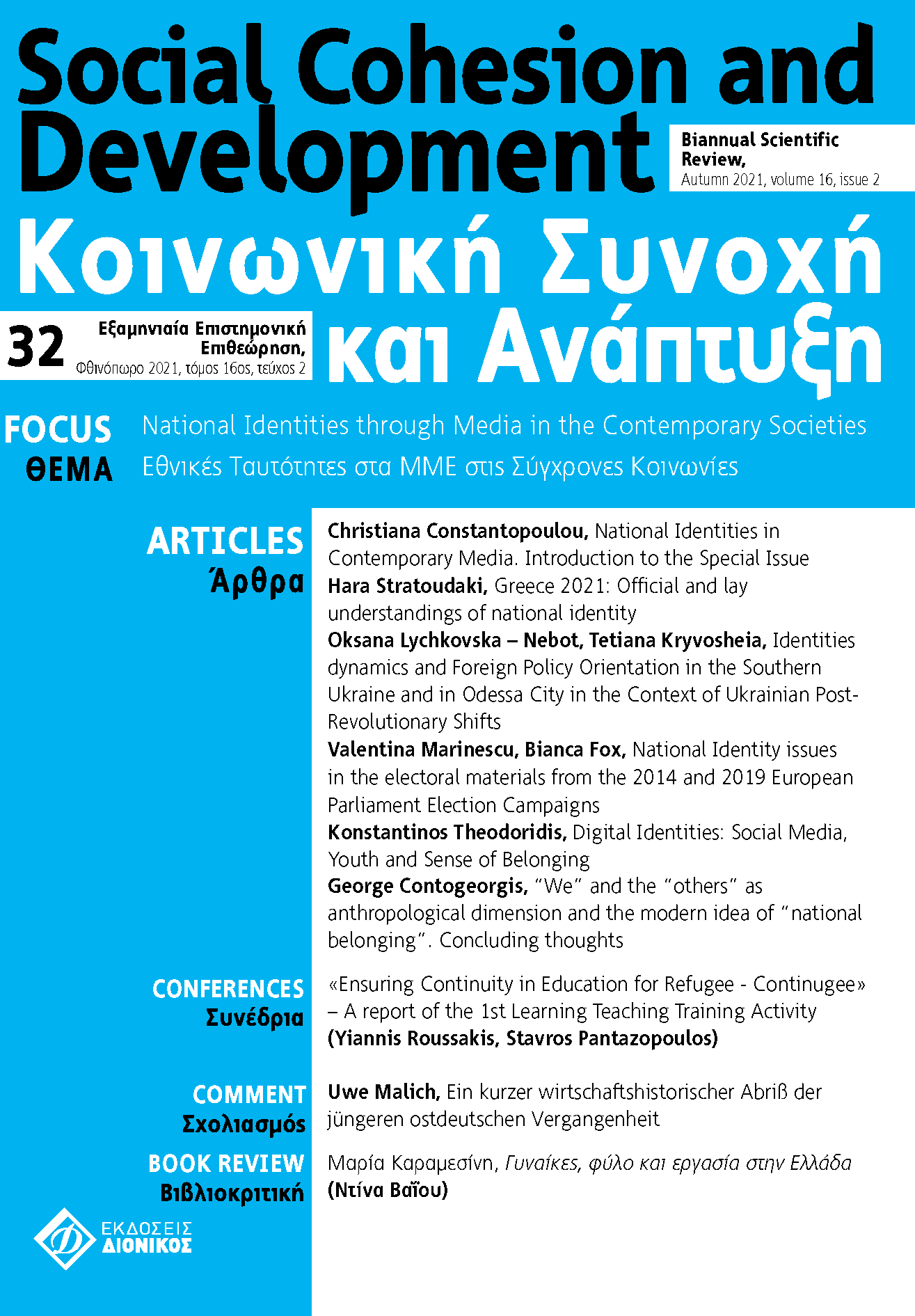Identities dynamics and Foreign Policy Orientation in the Southern Ukraine and in Odessa City in the Context of Ukrainian Post-Revolutionary Shifts

Abstract
This article shows the features of the constituent
identification practices of southern
Ukraine and Odessa city, and states some
changes that have occurred over the past 7
years since the Revolution of dignity in 2013-
2014. The main characteristics of Odessa’s
Identity we have revealed consist of 2 trends.
First one is a high self-organization potential
of the population, the presence of a high level
of business activity, as well as the desire and
the ability to protect themselves, their loved
ones, their rights. At the same time, distrust
towards institutional structures is traditionally
observed, and as well as, there are close networks
of informal contacts that help to survive
and “address problems”. Secondly, the creation
of new informal associations of civic activists
who since 2014 have taken active part
both in social networks and in the real social
space of the city and become real germs of
civil society in the Odessa region.
Article Details
- How to Cite
-
Lychkovska-Nebot, O., & Kryvosheia, T. (2021). Identities dynamics and Foreign Policy Orientation in the Southern Ukraine and in Odessa City in the Context of Ukrainian Post-Revolutionary Shifts. Social Cohesion and Development, 16(2), 131–139. https://doi.org/10.12681/scad.32199
- Section
- Articles

This work is licensed under a Creative Commons Attribution-NonCommercial-ShareAlike 4.0 International License.
Authors who publish with this journal agree to the following terms:
- Authors retain copyright and grant the journal right of first publication with the work simultaneously licensed under a Creative Commons Attribution Non-Commercial License that allows others to share the work with an acknowledgement of the work's authorship and initial publication in this journal.
- Authors are able to enter into separate, additional contractual arrangements for the non-exclusive distribution of the journal's published version of the work (e.g. post it to an institutional repository or publish it in a book), with an acknowledgement of its initial publication in this journal.
- Authors are permitted and encouraged to post their work online (preferably in institutional repositories or on their website) prior to and during the submission process, as it can lead to productive exchanges, as well as earlier and greater citation of published work (See The Effect of Open Access).


